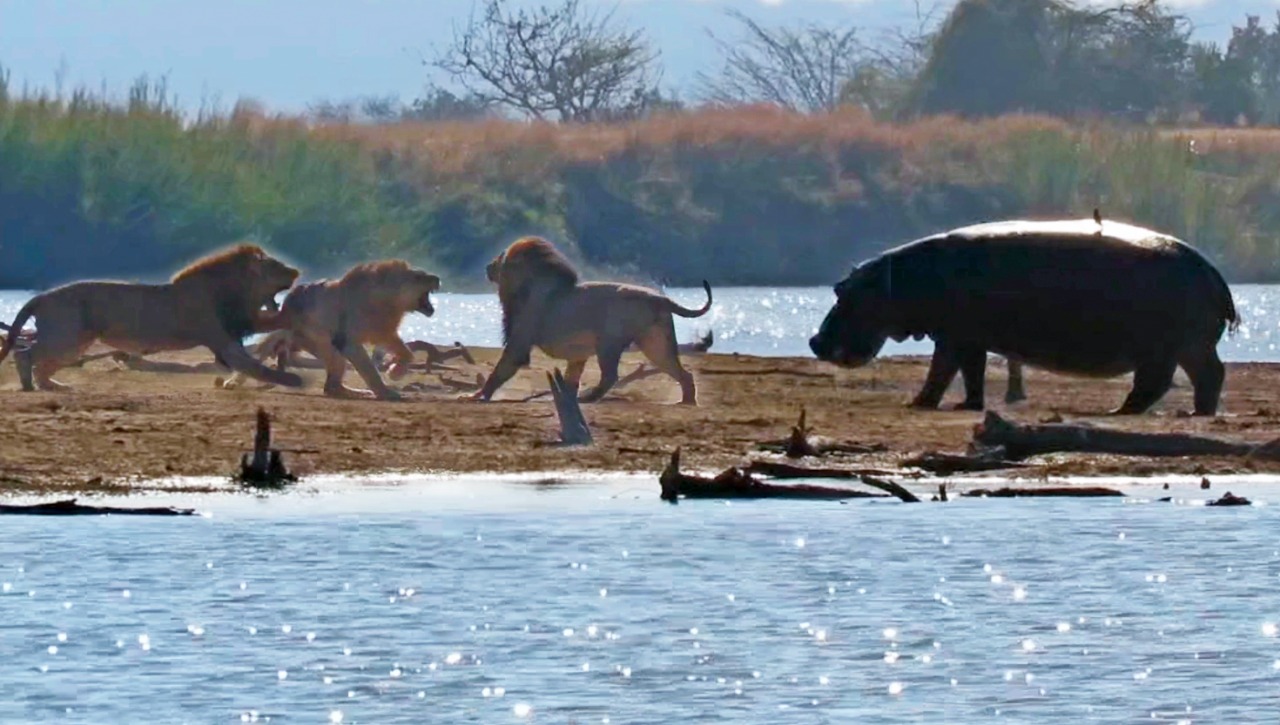How social are lions? Candid Animal Cam heads to the savannah
by Mongabay.com on 11 August 2020
- Every Tuesday, Mongabay brings you a new episode of Candid Animal Cam, our show featuring animals caught on camera traps around the world and hosted by Romi Castagnino, our writer and conservation scientist.
Camera traps bring you closer to the secretive natural world and are an important conservation tool to study wildlife. This week we’re meeting the only cats that live in groups: lions.
https://youtu.be/MEvBfm-RvF8
African lions (Panthera leo) used to live all over Africa but they disappeared from the northern areas and now they are mostly found in Sub-Saharan Africa. They live in savannas and grasslands, where cover and water can be found. Lions are the only cats that live in groups, known as prides. Prides are usually made up of about 5 adult females, 2 adult males, their young and subadult offspring. But of course, groups can be much bigger, it really depends on how much food and water is available.
Lions are a symbol of conservation in Africa. Their presence is an indicator of a functioning community of large grazers and an overall healthy ecosystem. The number of African lions in the wild is declining, however. Over the last ten years, their numbers have gone down by 30%. Their main threat is the destruction of their habitat due to expanding human settlements, a decrease in natural prey and last but not least, retaliatory killing by humans to protect livestock. Reducing conflicts between lions and humans is crucial to help these animals recover and safeguard their populations. Watch the video to learn more about them!
Special thanks to Dr. Meredith Palmer. She is a researcher at Princeton University using camera traps to study how prey animals (like wildebeest, zebra, and impala) respond to complex carnivore guilds and the reintroduction of locally-extinct predators (like lions, cheetah, hyena, leopards, and African wild dogs). The camera traps are triggered to play predator sounds when triggered, and then video record animal responses. They were deployed in the Serengeti ecosystem in 2019 and are planning on running the experiment in Gorongosa National Park, Mozambique, this summer 2020.
Don’t forget to subscribe to our Youtube channel and hit the bell icon to make sure you never miss a camera trap video again!
Romi Castagnino is Mongabay’s bilingual writer. Find her on Twitter and Instagram: @romi_castagnino
